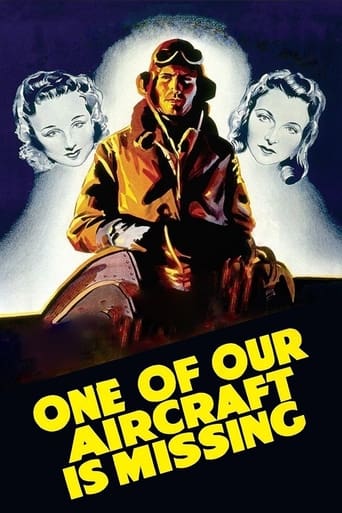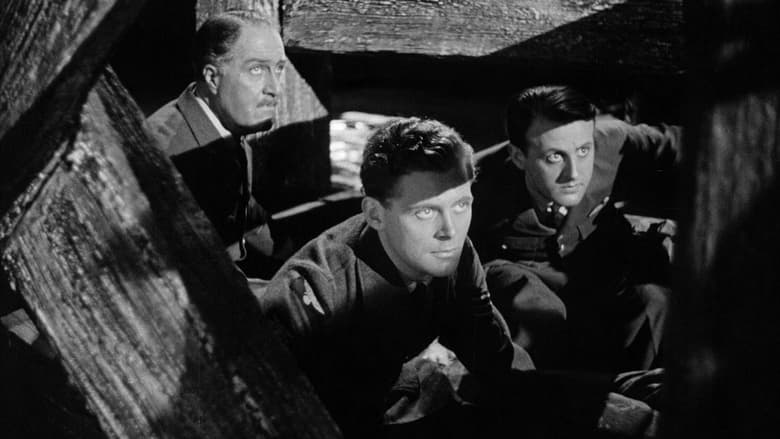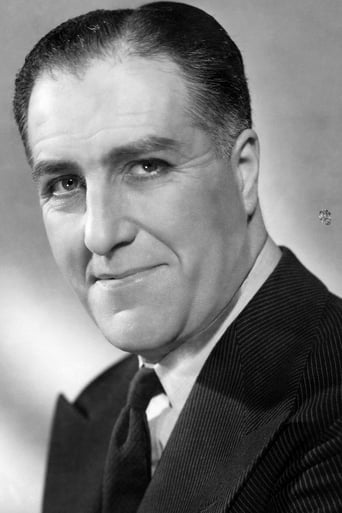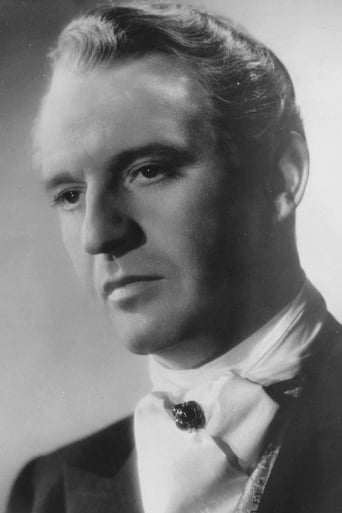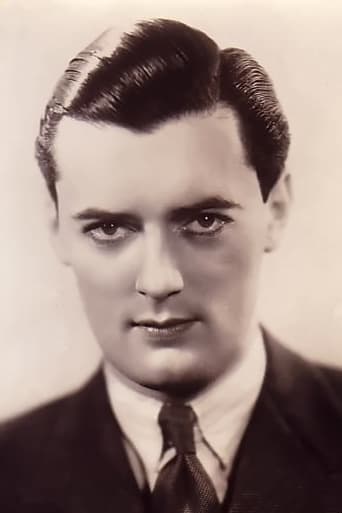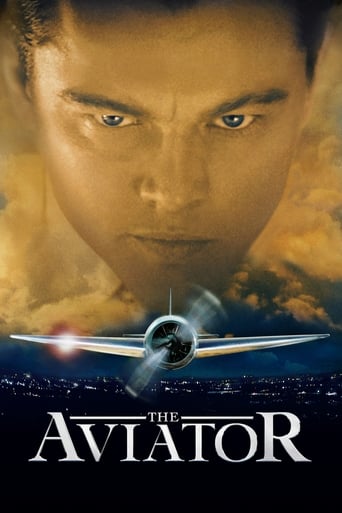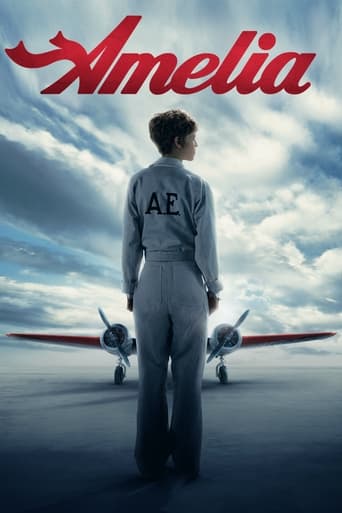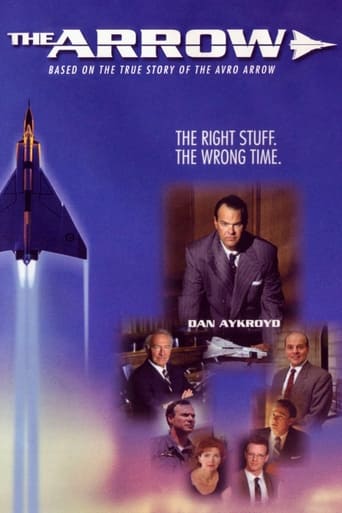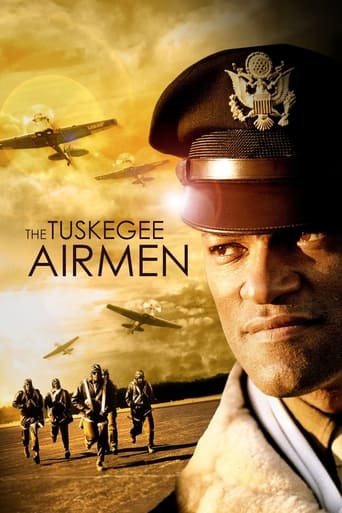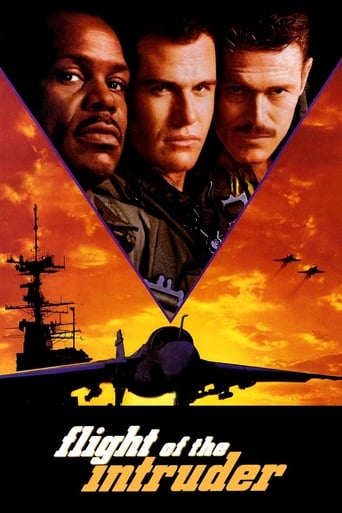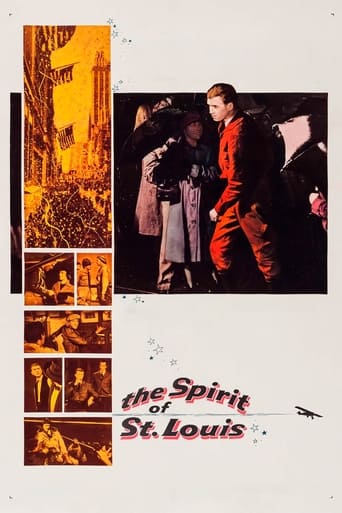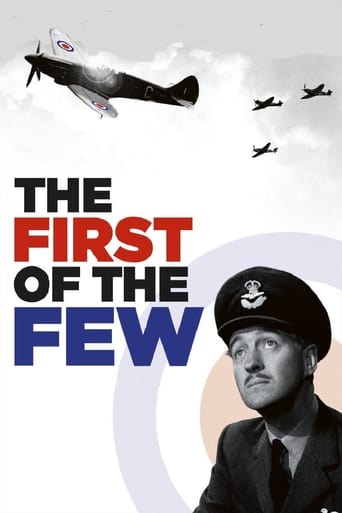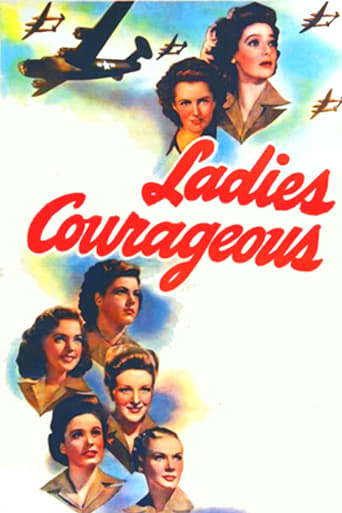One of Our Aircraft Is Missing (1942)
During the Allied Bombing offensive of World War II the public was often informed that "A raid took place last night over ..., One (or often more) of Our Aircraft Is Missing". Behind these sombre words hid tales of death, destruction and derring-do. This is the story of one such bomber crew who were shot down and the brave Dutch patriots who helped them home.
Watch Trailer
Cast


Similar titles
Reviews
I loved this atmospheric, beautifully scripted, edited and directed movie. It is, in it's way, incredibly original and unusual. No music, heroic, capable women, dramatically subdued, character driven and funny.One moment stood out for me. When complimenting the Dutch women in the resistance who is in charge of their escape one of the characters says "our girls would do the same, if given the chance." This was 1942. Nobody could say for sure that our girls weren't going to get that chance.Deeply moving.
Michael Powell and Emeric Pressburger were one of the great director-writer teams in the history of cinema (Ozu and Noda being possibly their only superiors; others come to mind, though they have smaller bodies of work -- Losey and Pinter, certainly Antonioni and Guerra, or De Sica and Guerra, maybe Lean and Coward). When they first began collaborating, Powell was the director, and Pressburger the writer, and although in time they would come to share those responsibilities to some extent, this more or less remained the nature of their partnership until it ended in 1957."One of Our Aircraft Is Missing" is the duo's fourth collaboration; however, it is the first film officially by The Archers, the production company started by Powell and Pressburger for this film. Prior to this one, they had worked together on three feature films, for which Powell was the only credited director and Pressburger the only credited writer of the two. Those films were "The Spy in Black", "Contraband" (a.k.a. "Blackout"), and "49 Parallel". "One of Our Aircraft Is Missing" marks the first time that both the directing credits and the writing credits were shared between them, a trend that would continue for the remaining extent of their working relationship. These early efforts by Powell and Pressburger are not especially good, and are by no means their best work. Formally, they're pretty flat, utilizing the plain, minimalistic, realist aesthetic that was popular in British cinema at the time. In terms of content, they're lacking in thematic depth, and they're highly propagandistic. There's not much to praise in these films, except that we can see the beginnings of the duo's gift for storytelling that would eventually elevate them to the great filmmakers we now know them to be.Powell had been directing films since the beginning of the '30s. I haven't been able to find many of those early films from before his days with Pressburger, but the one I did find -- his 1934 film, "The Fire Raisers" -- was superior to anything else I've seen from that period in British cinema, including Hitchcock's work from that time. By 1939, when Powell and Pressburger teamed up for their first effort, a spy thriller called "The Spy in Black", the war was breaking out, and this called for an influx of propaganda into British cinema. As degrading as that would inevitably be to the quality of their films, Powell and Pressburger felt it their duty to use the tools available to them to serve the cause they believed in, and to help in some small way to win the global war against fascism. I can't possibly blame them for that, but it is worth noting that these films, including "One of Our Aircraft Is Missing", are overtly propagandistic, and that will certainly be frustrating at times for any unbiased, unprejudiced viewer.Unfortunately, even outside of the propaganda element, there's just not that much to say about "One of Our Aircraft Is Missing", except that it's neither a good nor a bad film. It's similar to Powell and Pressburger's previous collaboration, "49th Parallel", in many ways. "49th Parallel" was a British film about Canada. It was a love letter to Canada intended to encourage a cross-cultural connection between the two wartime allies. "One of Our Aircraft Is Missing" does the same thing, except instead of Canada, it is the Netherlands this time. Both films feature Eric Portman, a quality actor.Bernard Miles is another familiar face in the film. He was a minor British actor that has popped up in many of the films I've seen from this era (he had small roles in "The Spy in Black", "The Lion Has Wings", and "Contraband", and was later in a couple of David Lean films, "In Which We Serve" and "Great Expectations", as well as Hitchcock's American remake of "The Man Who Knew Too Much"). Also keep an eye out for a young Peter Ustinov, as the priest. "One of Our Aircraft Is Missing" and "The Spy in Black" are the weakest films that I've seen by Powell and Pressburger (unless you include their short film, "The Volunteer", also from the war years). "49th Parallel" is a slightly better film, as is "Contraband", with its levity and wit, but this stretch of propaganda work by Powell and Pressburger is certainly the weakest period in their otherwise impressive oeuvre. It's not until their fifth collaboration, "The Life and Death of Colonel Blimp", that we see the legitimately impressive Powell and Pressburger cinema that would become their standard of quality from that point forward (again, barring "The Volunteer", their sixth film). "The Life and Death of Colonel Blimp" was the last of their feature propaganda films. Their seventh collaboration, "A Canterbury Tale", begins to break away from that irritatingly patriotic mode of filmmaking. While it certainly retains some of the propaganda elements from their previous films, it begins to see them liberated from the necessity to make those kinds of films, and that was a big step forward for their cinema.And yet, even these early films, from before Powell and Pressburger truly hit their stride with "The Life and Death of Colonel Blimp", are enjoyable enough to justify a watch. "One of Our Aircraft Is Missing" serves its purpose as a propaganda film, and also is mildly satisfying as entertainment. It has a plot that is probably just engaging enough to keep the viewer's interest, and while there's no real substance of any kind, it is certainly not a bad film. It is simply a mediocre film. Those who aren't watching it as a Powell and Pressburger film, and who are simply watching it in its own right, may not find it especially fulfilling. However, fans of Powell and Pressburger's work (or other, similar films from the time period) will likely find it to be worth the time.RATING: 4.67 out of 10 stars
One of the best war films produced World War II, `One of Our Aircraft is Missing' is the product of one of the best British filmmaking teams of the 1940s, Michael Powell and Emeric Pressburger. The makers of such unusual and memorable films as `The Red Shoes' and `Black Narcissus', Powel and Pressburger's films were never like anyone else's. Their approach to a wartime propaganda film was equally different.`One of Our Aircraft is Missing' begins dramatically with the crash of an RAF Vickers Wellington bomber designated `B-For Bertie', and then flashes back to the events leading thereto. The viewer is introduced to the six members of crew, and learns that they had actually bailed out of their crippled aircraft prior to the crash, landing in Nazi-occupied Holland. The remainder of the story describes their escape back to Britain.What makes this film different from the conventional Hollywood treatment of similar subject matter is that `One of Our Aircraft is Missing' stresses the courage and resourcefulness of the Dutch civilians rather than the aircrew. Indeed, it made manifestly clear that the British crew could never have escaped without the assistance of a great many ordinary Dutch people of all ages and both sexes. The characters, both British and Dutch, are all well drawn Surprisingly enough, even the Germans are depicted as not entirely inhuman. `They want to be liked', says one Dutch patriot who has wormed her way into their confidence by posing as a Quisling.From a historical perspective, this film is of interest due to its depiction of RAF Bomber Command operations during the early part of World War II, as well as details of the interior of the famous Wellington Bomber. It is also worth seeing as early example of the work of legendary film director David Lean (`Oliver Twist', `Bridge Over the River Kwai', `Lawrence of Arabia', Doctor Zhivago', Ryan's Daughter', etc), who served as Film Editor. There is also an early performance by a very young (and thin) Peter Ustinov, who acts in Dutch and Latin as well as English. All in all, this film is well worth a look.
"B. for Bertie crashed on Sunday morning. 0431. But our story starts some fifteen hours earlier......."With that simple statement Powell and Pressburger take us on another journey into cinema. A group of wise-cracking RAF crewmen take off on a routine bombing flight. The plane is shot and the crew manage to parachute off the before the plane stalls and crashes.On the ground the men (minus the pilot) gather together. They first encounter a trio of children who ask "have you come to invade Holland?" The men are taken to the adults who debate about what to do with them.Truly inventive film is well thought-out and photographed. Interest never wavers. What could have been a run-of-the-mill war film was skillfully crafted into a film of humanity in the midst of inhumanity.Shameless Laudations!

